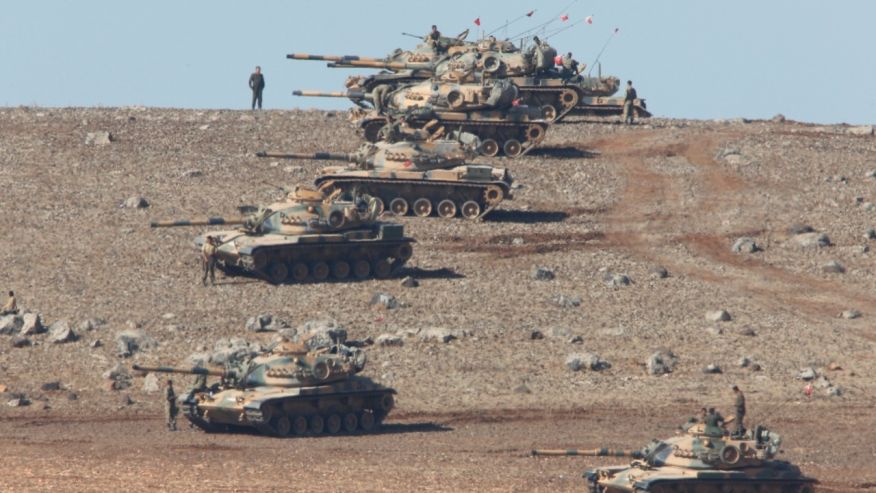Turkey, the most recent foreign force to gain direct influence in Syria, is expected to strike a balance between the conflicting goals of Russia and the United States to be achieved in the war-torn country.
A balance is imperative if Turkey wishes to follow through with ambitions of a “safe zone” in northern Syria.
Turkey has for several years called for world powers to help create a zone to protect civilians in its war-torn southern neighbor, with the dual aim of clearing its border of ISIS and Kurdish militia fighters and of stemming a wave of migration that has caused tensions with Europe.
Western allies have so far balked at the idea, saying it would require a significant ground force and planes to patrol a “no-fly zone”, a major commitment in such a crowded and messy battlefield.
Russia, which backs Syrian regime head Bashar al-Assad, has meanwhile argued in the past that any foreign incursion would be allegedly illegal.
But Turkey’s offensive into northern Syria, launched with its Syrian opposition allies two weeks ago, has created what officials in Ankara are already calling a “de facto safe zone”, driving ISIS hardline militants from the last 90-km strip of border territory they still controlled.
Turkey now wants international support for a deeper operation to take control of a rectangle of territory stretching about 40 km into Syria, a buffer between two Kurdish-held cantons to the east and west and against ISIS to the south.
“The first phase of the plan has been achieved. Turkey no longer has borders with ISIS. But this area is still very thin and vulnerable to attacks from the other side,” said a senior Turkish official, speaking on condition of anonymity so as to discuss the strategy more freely.
“What will be done now will depend on coordination with coalition powers and the support they will provide,” he said, adding an improvement in relations with Russia had “eased Turkey’s hand” operationally.
The Turkish-backed opposition factions, mainly Syrian Arabs and Turkmen fighting under the banner of the Free Syrian Army, took charge of the frontier between the towns of Azaz and Jarablus on Sunday after seizing 20 villages from the ultra-hardline extremists.
Ahmed Osman, commander of the Sultan Murad Syrian opposition group, one of the Turkish-backed forces, told Reuters he would like to see a permanent “safe zone” but that this would require an agreement between Turkey, the United States and Russia.
